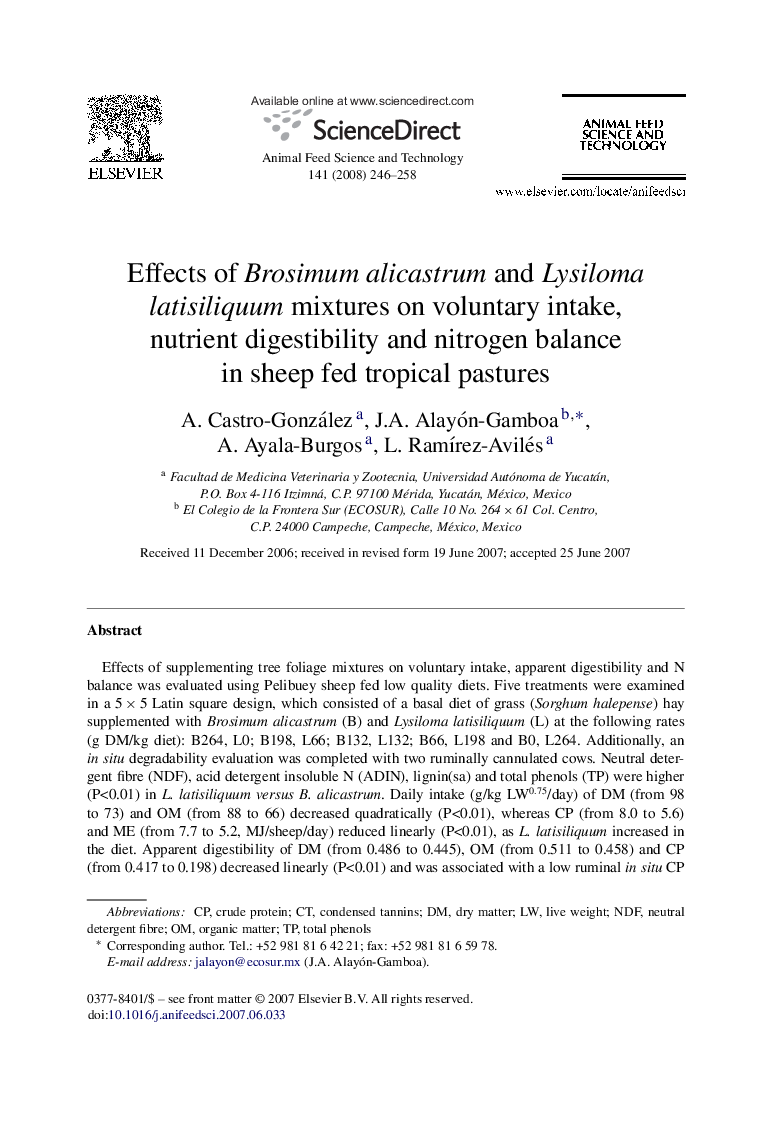| Article ID | Journal | Published Year | Pages | File Type |
|---|---|---|---|---|
| 2420659 | Animal Feed Science and Technology | 2008 | 13 Pages |
Effects of supplementing tree foliage mixtures on voluntary intake, apparent digestibility and N balance was evaluated using Pelibuey sheep fed low quality diets. Five treatments were examined in a 5 × 5 Latin square design, which consisted of a basal diet of grass (Sorghum halepense) hay supplemented with Brosimum alicastrum (B) and Lysiloma latisiliquum (L) at the following rates (g DM/kg diet): B264, L0; B198, L66; B132, L132; B66, L198 and B0, L264. Additionally, an in situ degradability evaluation was completed with two ruminally cannulated cows. Neutral detergent fibre (NDF), acid detergent insoluble N (ADIN), lignin(sa) and total phenols (TP) were higher (P<0.01) in L. latisiliquumversusB. alicastrum. Daily intake (g/kg LW0.75/day) of DM (from 98 to 73) and OM (from 88 to 66) decreased quadratically (P<0.01), whereas CP (from 8.0 to 5.6) and ME (from 7.7 to 5.2, MJ/sheep/day) reduced linearly (P<0.01), as L. latisiliquum increased in the diet. Apparent digestibility of DM (from 0.486 to 0.445), OM (from 0.511 to 0.458) and CP (from 0.417 to 0.198) decreased linearly (P<0.01) and was associated with a low ruminal in situ CP degradability of L. latisiliquum. The decrease in N intake and digestibility induced lower (P<0.01) N retention (from 2.7 to 0.1 g/sheep/day). Although the incremental substitution of B. alicastrum with L. latisiliquum negatively affected intake, rumen degradation, digestibility and N balance, results indicate that this foliage mixture, but with no more than 132 g DM/kg diet of L. latisiliquum, could be used as a supplementation strategy to sheep fed low quality forage without negative effects on voluntary intake.
